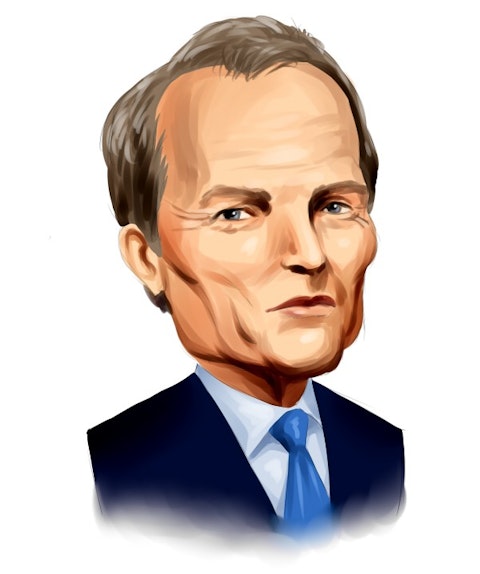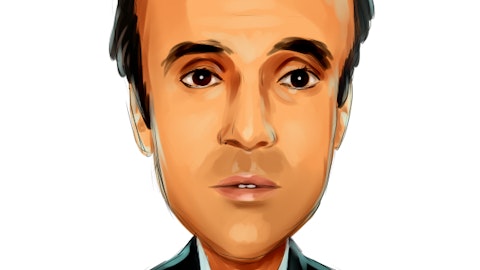Hedge funds decry Larry Summers ‘fiasco’ (HereIsTheCity)
Prominent hedge fund managers criticized President Obama’s decision not nominate Larry Summers to be chairman of the Federal Reserve. “I think the process, specifically talking about Larry Summers and the decision to not move forward with him as Fed chairman, is horrendous,” said Highbridge Capital Management co-founder Glenn Dubin at the Bloomberg Markets 50 Summit. Dubin, whose Highbridge firm is owned by JPMorgan Chase & Co (NYSE:JPM), also said the process around Summer’s failed bid was a “fiasco” and that “he was hung out to dry.” He said Summers would have made a “great” chairman.

Klarman returns money to investors (NYPost)
The so-called smart money is bailing. That seems to be the message from hedgie Seth Klarman, who is telling investors in his $28 billion Baupost Group that he’s going to give them some of their money back at the end of the year. The fourth-largest hedge fund in the US wants to limit its size to $25 billion, according to Institutional Investor, which first reported the news. Klarman, 56, a devotee of Warren Buffett’ s value investing philosophy, has been warning investors this was in the cards since April but did not detail how much he would give back.
Prosecutors Pursue Big SAC Settlement (WSJ)
Federal prosecutors, seeking to cap a major chapter in an insider-trading crackdown, proposed settling a criminal case against hedge fund SAC Capital Advisors LP for $1.5 billion to $2 billion, people familiar with the case said. At a meeting late last week at the U.S. attorney’s office in Manhattan, SAC lawyers argued for a lower settlement amount—and that a separate $616 million civil regulatory penalty SAC agreed to pay earlier this year be deducted from any criminal sanction, according to the people.
BoE: no action now on housing, to focus on hedge fund rate risks (Reuters)
Britain’s housing recovery does not require any action from regulators but will need to be watched closely, the Bank of England’s Financial Policy Committee said on Wednesday. The FPC, which has been tasked with spotting risks to the economy from the financial system, also singled out hedge funds for an examination of their vulnerability to rises in long-term interest rates. The FPC said it made no new recommendations at its most recent meeting on September 18.
Skybridge’s Ray Nolte says Asian hedge funds face performance and asset-raising challenges (Opalesque)
Asian hedge funds are facing major difficulties compared with their larger counterparts in the West as they are forced to achieve higher performance and stay relevant in the changing market environment, said Ray Nolte, Co-Managing Partner and Chief Investment Officer of SkyBridge Capital. Nolte said in an interview with Investment Pension & Asia “The hedge fund industry is going through both cyclical and secular changes. But as an industry, assets under management are peaking in absolute terms so funds are being raised.”
The advantages and disadvantages of investing in hedge funds (MoneyManagement)
Investing in hedge funds is one of the more polarising topics in the investment world. There are strongly-held views at each end of the spectrum, with little in-between, writes Craig Stanford, who highlights the potential benefits and addresses common concerns about investing in hedge funds. The advocates of hedge fund investing paint a rosy picture without acknowledging the negative aspects, while the critics paint an opposing view without acknowledging the potential benefits.
‘Sweet spot’ for banks: Hedge-fund manager (CNBC)
A Hedge Fund Manager Who Doesn’t Mind a Losing Bet (NYTimes)
Meet Mark Spitznagel, the hedge fund manager who doesn’t mind a losing bet. Mr. Spitznagel, the founder of Universa Investments, which has around $6 billion in assets under management, says the stock market is going to fall by at least 40 percent in one great market “purge.” Until then, he is paying for the option to short the market at just that point, losing money each time he does. There is no shortage of market bears who take a grim view of the stock market. But Mr. Spitznagel has gained credibility in the investment world by predicting two market routs in the past decade, first in 2000 and then in 2008.
Share Buybacks Are the Apple of Carl Icahn’s Eye (InstitutionalInvestor)
Dinner plans with Apple CEO Tim Cook rocketed around the investment world on August 22 via the magic of Twitter. The source was none other than activist investor Carl Icahn, who had tweeted: “Spoke to Tim. Planning dinner in September. Tim believes in buyback and is doing one. What will be discussed is magnitude.” A commitment earlier this year to earmark $60 billion for share buybacks over the next three years, aimed at placating Apple Inc. (NASDAQ:AAPL) shareholders, fixated on the company’s $150 billion mountain of idle cash…
Rogers: ‘Hopelessly managed’ India could suffer EM crisis (InvestmentWeek)
Legendary investor Jim Rogers has warned a ‘hopelessly managed’ India could experience a full-blown emerging markets crisis. In an interview with Business Insider, Rogers said a crisis could potentially erupt in badly managed countries, citing India as an example. “Look at India. India is hopelessly managed and finally the wolf is now at the door,” he said. “I do not know what Indian politicians are going to do, as they keep trying to blame everybody in sight except admitting their problems.”
China’s economic growth more like 4%: Marc Faber (MoneyControl)
China’s economy is probably growing at an annual rate of 4 percent, said Marc Faber, editor and publisher of the Gloom, Boom and Doom Report, brushing aside a recent string of upbeat economic numbers from the world’s second biggest economy. “I said to an economist I think China is growing at 4 percent per annum and he said do you mean minus 4 percent?,” Faber told CNBC on the sidelines of a hedge fund conference in Singapore on Wednesday. “I don’t think [China’s economic growth] is minus 4 percent, but we do have to adjust a lot of economic statistics for the credit that has been pushed into the system that is not sustainable in the long-run,” he added.
Hedge Funds Lag the Market, But Their Top Stock Picks Outperform (InstitutionalInvestorsAlpha)
Let’s face it: Barring a miracle, the average hedge fund is poised to lag the S&P 500 for the fifth straight year. Through August, hedge funds on average were up 4 percent or so, depending on the database you cite. This works out to about one quarter of the gain posted by the widely followed benchmark. Hedge fund defenders will argue that hedge funds often lag the market during strongly positive years and that you have to look at their risk-adjusted returns over time.
Recommended Reading:
Steven Cohen, SAC Capital’s Stake in SunEdison Surges
Seth Klarman’s Margin of Safety Might Need To Sell More Copies After This News





